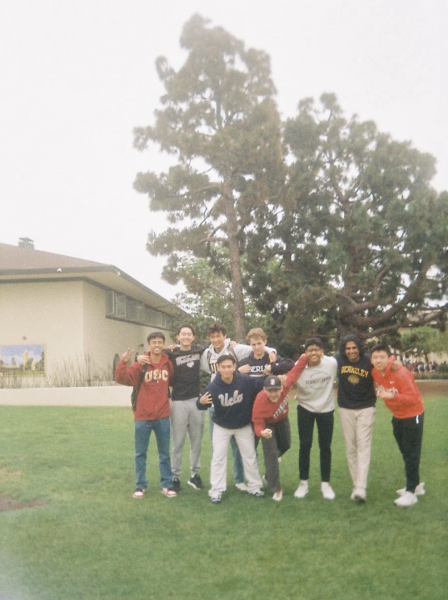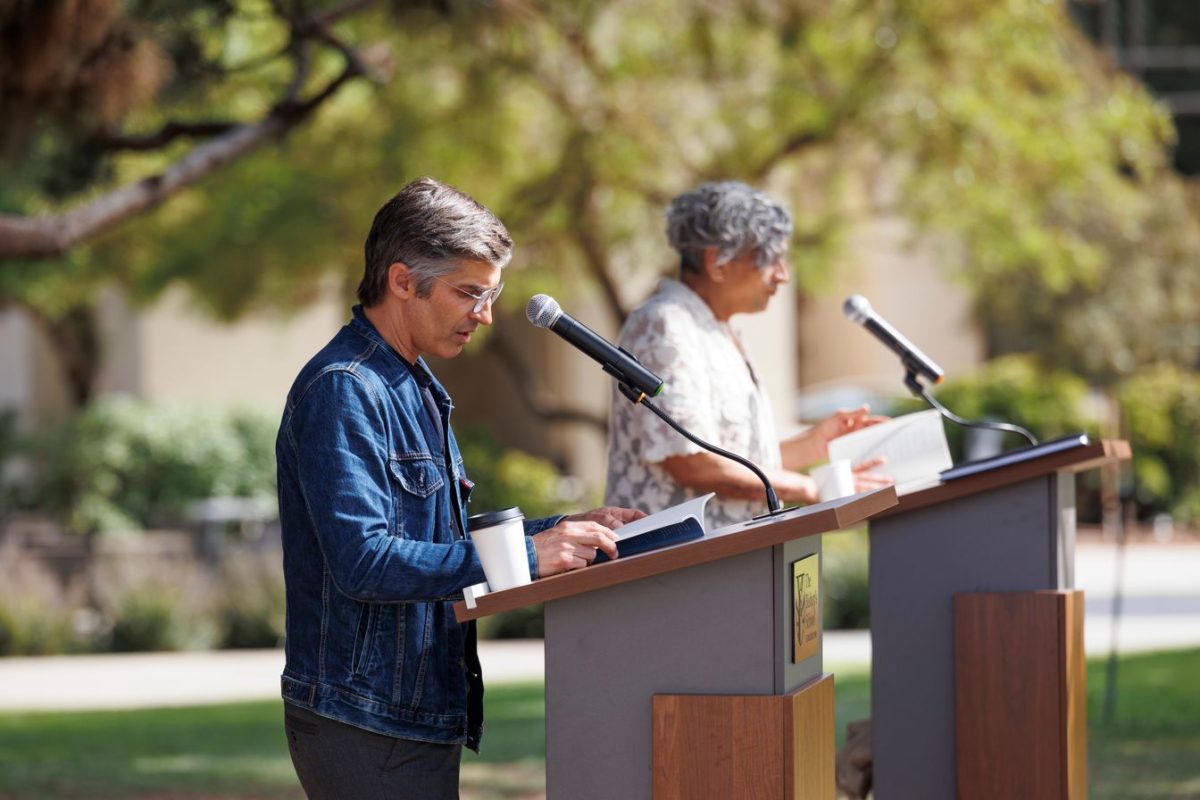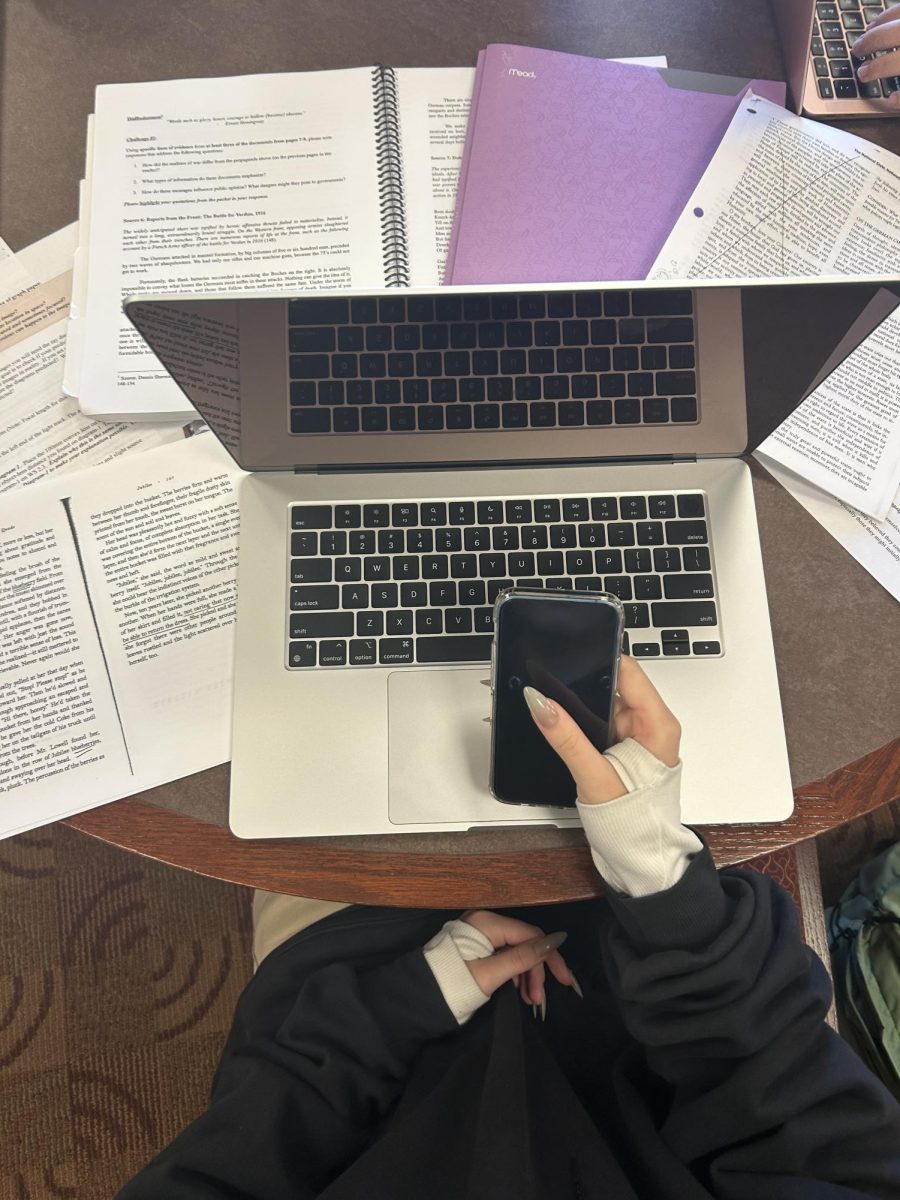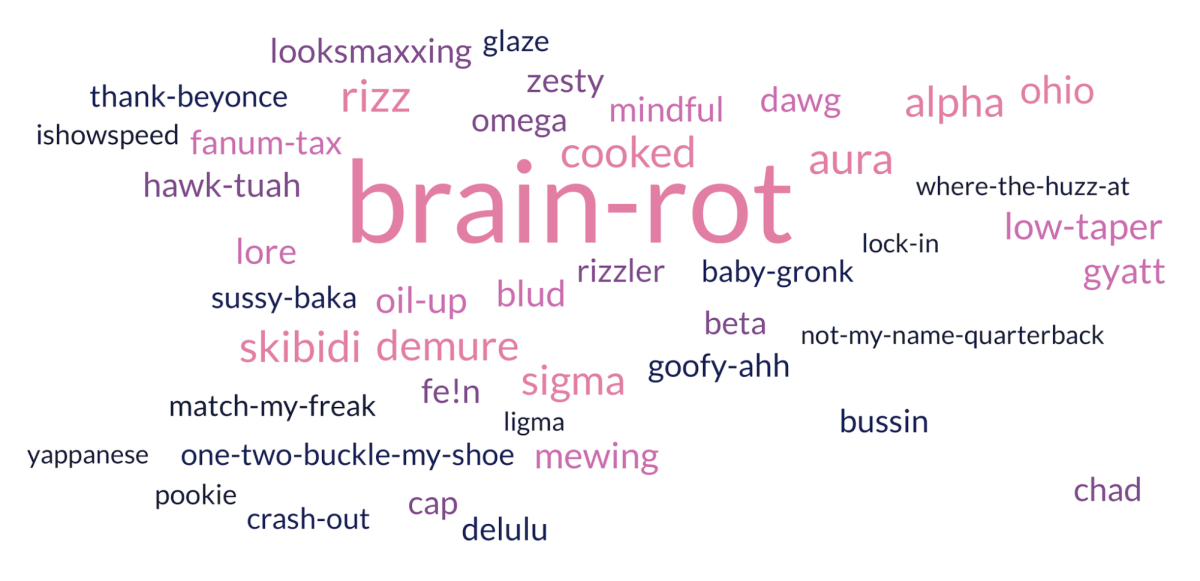You take a deep breath after clicking “Completed” on your Assignment Center, unbelievably thankful for a break. But soon, your peaceful bliss is rudely interrupted, when you remember you have a Calc quiz tomorrow. And a meeting with your college counselor. And you haven’t finished your supplemental essays yet.
The first semester of senior year is notoriously the toughest months of high school –– and especially during October and the first half of November, Bishop’s seniors are swimming in work. Not only are they scrambling to keep up with their general classes, but some are choosing to apply Early Decision to a single institution, a legally binding contract to attend that college if accepted, with an early application deadline typically of November 1.
On the other hand, some opt to only apply to schools with Early Action deadlines (due near the start of November with early results, but no binding agreement); some apply to Restricted Early Action schools (early applications and early results, but a student can only apply REA to a single school); some are committed athletes that have, in a sense, also applied to a school Early Decision; and some apply Regular Decision (applications are due typically between early January and mid-February).
How do you decide which application timeline is right for you? Current Bishop’s seniors, recent Bishop’s alums, and our Director of College Counseling Ms. Wendy Chang share their insights in this comprehensive college application guide.
Early Action (EA)
Early Action is a route most students take, given that it’s a win-win: you’re not bound to the schools you apply to, but you get your decision from the institution much earlier than your regular decision application. You can apply to multiple schools Early Action. Additionally, applying early can show schools that you have a lot of interest in them, potentially increasing your chances of acceptance.
Serena Zhang (‘24) is applying EA to some schools alongside her ED. “Certain ED agreements allow us to apply EA to public institutions,” she said. Recent alum Kosi Eguchi (‘23) added, “I did EA to a couple of schools. Although these were my safety schools, they offered me a good balance of being able to [choose] what school I felt was best for me and [still] having the early security of knowing I got into a college.”
Prospective musical theatre major Sophia Gleeson (‘24) agreed: “I’m EAing to one school (and maybe one other) because they’re one of the only schools that let me apply and do an early audition for musical theatre.” She added, “I’ll get a decision sooner than my regular decision schools, so if I get in it’ll be nice to have at least one offer as I go into auditions.”
Restricted Early Action (REA)
Restricted Early Action applications combine aspects of Early Action and Early Decision: they require an early application and aren’t binding, but they prevent you from applying to most other schools Early Action.
Giacomo Berti (‘24)’s top choice is an REA school, but he will also be applying EA to some public schools. Although it’s in the name, Restricted Early Action usually still allows you to apply EA to very few other institutions. There are other cases in which you can only qualify for merit-based aid at an institution if you apply early, so REA schools allow for that –– common examples include Stanford (REA) and the University of Southern California (which offers merit-based scholarships only if you apply EA).
Ava Bradley’s (‘24) dream school only offers REA, so that’s the route she’ll be taking. “I’ve done a lot of research on schools and visited a good chunk of the ones that I’m applying to, but none of the ones that offered ED felt like THE one yet. I don’t really want to live with that ‘what if’ feeling, if that makes sense. Conversely, because I was able to take a close look at so many schools, my college app list consists entirely of schools that I would be pretty thrilled to go to. I genuinely really love my likelys [schools that you are projected to be admitted into], so worst comes to worst, and I only get in there, I won’t regret ‘wasting’ my ED.”

Early Decision (ED)
Early Decision is likely the path you’ve heard the most discussion about, or perhaps have been warned about. It is a legally binding agreement in which the student, their parents/legal guardians, and college counselors must sign a contract confirming that if admitted, the students will be attending the institution. There are a few clear pros and cons for this path.
Pros
Applying Early Decision shows the institution your level of commitment, which could possibly aid you in your admission chances. Serena said, “I am choosing to ED to a school. That school was my top choice during my college search process, and the main reason I chose to ED is to prioritize the application for that top choice school.” Let’s say “Student A indicated that their favorite two colleges were two very highly selective schools and one was EA and one was ED,” Ms. Chang added. “I might encourage them to do the ED, since the binding ED/yield factor can help more than an EA.”
ED has grown in popularity in the past years. “I would definitely say looking back over 20 years working with students, although ED has always been around, it’s probably in the last 10-12 years that it has really boomed,” Ms. Chang said. For the Bishop’s Class of 2013, around 25% of the class applied ED somewhere; 10 years later, around 50% of the Bishop’s Class of 2023 applied ED.
Besides giving the school a sense of security, applying ED can also give you a sense of security. By the time you get your acceptance back mid-December, you’ll be certain of what institution you’re attending, alleviating stress.
Cons
On the other hand, ED may “force students into decisions they may not be ready to make,” Ms. Chang explained. “I don’t like where ED has come from where it used to be. When I first started doing college counseling on the high school side from admissions in 2004, if a student came to me and said, ‘I have to figure out where I am applying early,’ I would get annoyed with them.” She would assure them that if they didn’t have a “clear top choice school” by September/October, “don’t rush it.” But because ED has grown into such a culture, “sadly, it’s not the case anymore… I think [ED] accelerates the [college application] process in an unhealthy way. Now, students feel anxious if they head into Winter Break and haven’t gotten in anywhere yet.”
Although the con list may be short, the danger of applying ED “just because” is prevalent. Do your best to not get sucked into the myth that you have to ED somewhere. Applying ED should be a way to lift some weight off of your shoulders –– not to add more.
Regular Decision (RD)
Regular Decision is the most general application timeline a student can take. The applications are mostly due at the beginning of January, giving students Winter Break to work on them, and the results come back by late March to early April. You can apply RD even after you apply to a school in any of the ways listed above (besides if you ED-ed and were accepted).
Just RD-ing to schools is perfectly legitimate. For some families, “their favorite school [may be] an ED school, but due to financial reasons, they and their family are not comfortable committing to an ED school and want the opportunity to compare financial aid awards in the spring,” Ms. Chang explained.
Factors to Consider
Considering the differences between the four application timelines, how do you decide which schools to apply early to? Or which schools to apply to in general?
When coaching a student and family early on in the application process, Ms. Chang said that they discuss “the characteristics of a learning community the student is looking for and the priorities a student brings to the table.” This is what the counselors mean by a student’s “fit” with a school.
Questions to consider:
- Learning environment: Are you comfortable with a school similar to Bishop’s with small class sizes and direct relationships with professors? Or are large lectures fine with you?
- Teacher-driven vs. Subject-driven: Ms. Chang often asks, “Does the teacher make or break the appeal of a class, or as long as the subject interests you, you can motivate [and] engage on your own?”
- Program-specific: “Are there certain academic programs [you] want to prioritize or are [you] still wanting to explore and experiment?” Ms. Chang asked. Are you set on being a mechanical engineer, or are you also potentially interested in being a dentist?
- Community/culture: What elements of a community are vital to you? “A diverse student body, welcoming atmosphere for LGBTQIA+ students, school spirit, Greek life, political climate?” Ms. Chang said. Leila Feldman (‘24) has committed to play collegiate field hockey, so as an athlete, “finding a good team and an environment [she] really loved” was her top priority.
- Location: Ms. Chang said, “How much does locale, weather, and geography REALLY matter?”
- Tuition: Does the school offer good financial aid? Merit-based aid?
Final Words
Some students think that senior year midterm grades matter a lot, but some claim otherwise. Which is it?
Like most college application questions, it depends! Ms. Chang explained, “If [students] like their grades and want us to send them, we’ll send them. If they don’t want us to send them, we won’t.” Some schools require senior midterm grades, whereas some are very clear that they don’t consider them (like the UCs). And in both cases, your senior grades aren’t provided when your application is first read. “So indeed, it will tend to put more focus on grades up through the end of junior year,” Ms. Chang said.
There’s undoubtedly a lot to consider when beginning your college application process. In this new world, it may seem like everything is a whirlwind; but remember that you have people –– peers, recent alumni, and adults –– who are here to help you. Take a breath. You got this.


![Recent alum Kosi Eguchi (‘23) (pictured second to the right, alongside Nao Nadahara (‘23), James Stutts (‘23), and Natasha Mar (‘23)) didn’t end up applying ED to any school, but he did apply EA to a few institutions. “They offered me a good balance of being able to [choose] what school I felt was best for me and [still] having the early security of knowing I got into a college,” he said.](https://thebishopstower.com/wp-content/uploads/2023/11/Screenshot-2023-11-09-at-7.34.34-PM-1200x903.png)











